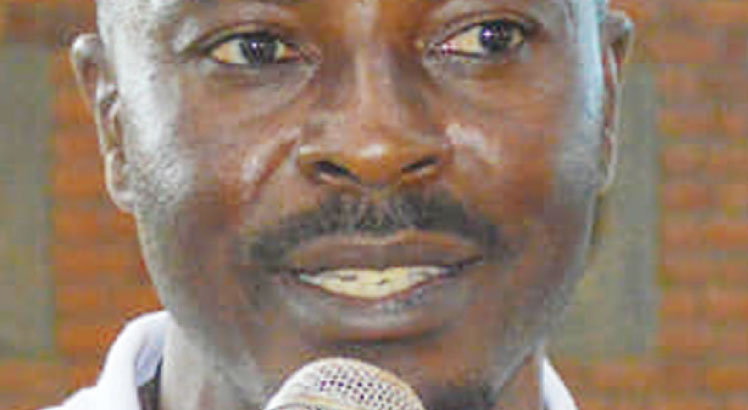Gate pilfering days numbered
- Sulom to buy electronic turnstiles
A major improvement in gate management is expected after Football Association of Malawi (FAM) gave Super League of Malawi (Sulom) the green light to purchase electronic turnstiles to be fitted at major stadiums in the country.

Malawi has five major stadiums— Ministry of Sports and Culture owns Kamuzu Stadium, Civo Stadium managed by Office of the President and Cabinet (OPC), Mzuzu Stadium owned by Mzuzu City Council and Silver Stadium which belongs to Reserve Bank of Malawi (RBM).
None of the stadiums has an electronic ticketing system and only RBM once showed interest to purchase the electronic turnstiles for Silver Stadium to curb gate collections pilfering, but the project has never materialised due to lack of funds.
The Chinese-funded Bingu National Stadium in Lilongwe is expected to be completed next month, but it will not have the electronic turnstiles device.
FAM president Walter Nyamilandu said the association has given Sulom the go-ahead to procure the electronic turnstiles as one way of curbing pilferage of revenue at stadiums.
“This is one of the priority areas that we are looking into. We will reduce the human element in management of the gates to curb fraud and loss of revenue from ticketing sales,” Nyamilandu said.
“The current system is prone to abuse and stakeholders are not fully maximising from the revenue realised because a huge chunk goes into pockets of individuals.”
Nyamilandu said since not all the stadiums can be fitted with the gadgets, FAM would prioritise the major stadiums.
“Discussions are underway with Super League of Malawi to establish a cost-effective way of installing electronic gadgets at key stadia. Sulom has been tasked to carry out a feasibility study and come up with a project proposal for funding purposes,” Nyamilandu said.
“We will need to identify a financier to fund the project, hence the need for a sound project proposal which should prove growth in revenue over a defined period of time and timely recovery on the return of investment.”
Nyamilandu said they were treating the purchase of the electronic turnstiles as a must before the 2016 season starts.
“This is a short to medium-term project because we can’t afford to wait any longer,” he said.
Sulom has since obtained quotations from a South African turnstile manufacturing firm Turnstar Systems, with a turnstile for each gate costing $5 422 (about K3 million).
The turnstiles have bi-direction and electronic locking system with complete control panel for data collection.
Sulom treasurer Tiya Somba-Banda said the electronic turnstiles would mark a new era in gate management.
“The electronic turnstiles will reduce gate fraud to zero, thereby maximising revenue from the gates to the fullest and teams realising the full potential of revenues,” Banda said.
“We will no longer need people to manage the gates. The turnstiles will automatically open once a valid ticket is swiped at the turnstile.”
Sulom is also hoping to go full throttle in advance ticketing system using the electronic turnstiles.
Currently, advance ticketing faces the challenge of counterfeit tickets printed by unscrupulous people.
“Advance ticketing will drastically improve the accountability and financial management of the clubs as Sulom will be transferring the team’s share of the collections directly into the club’s accounts instead of sharing the cash which is collected at the gates,” Banda said.
“This will heavily bring sanity at the gates and stadiums in general. Issues of selling tickets beyond the capacity of the stadiums will be a thing of the past as tickets will only be printed according to the capacity and gates will be programmed only for the correct capacity of the stadium.”
Sulom also hopes to use the electronic turnstiles to keep track of game attendance.
“The system will be able to track the actual statistics on the number of attendants,” Banda said.
“The statistics will in turn assist us in marketing the game to the corporate world based on the actual data.”
However, FAM and Sulom will have to seek permission from stadium owners to install the gadgets at the stadiums.
Bingu National Stadium construction’s chief architect Knight Munthali recently said that there were no plans to install the electronic gadgets at the newly constructed stadium.
Munthali said the installation of the gadgets was not in the new stadium’s budget, but once the facility is handed to Ministry of Sports, the owners were at liberty to do so.
Director of sports in the Ministry of Sports Jameson Ndalama welcomed FAM and Sulom’s proposal, saying government was ready to support the initiative.
“As government our stand is that the world is going electronic and we need to move with time. We need to be exemplary. There are no electronic ticketing systems at the new stadium, yes, but we also have plans to install them,” Ndalama said.
“FAM and Sulom’s plans are even more welcome. We are ready to help in making sure that not only the new stadium, but all our stadiums including the private-owned ones are also fitted with the electronic ticketing system.”
One of the country’s crowd pullers, Big Bullets FC, hope to utilise their huge supporter-base to collect maximum revenue once the electronic ticketing is introduced.
“Most of the time you see a huge turnout at our games and yet the money realisedis not much. Once the electronic ticketing is introduced, we hope to see an improvement,” Bullets vice-general secretary Kelvin Moyo said. n





